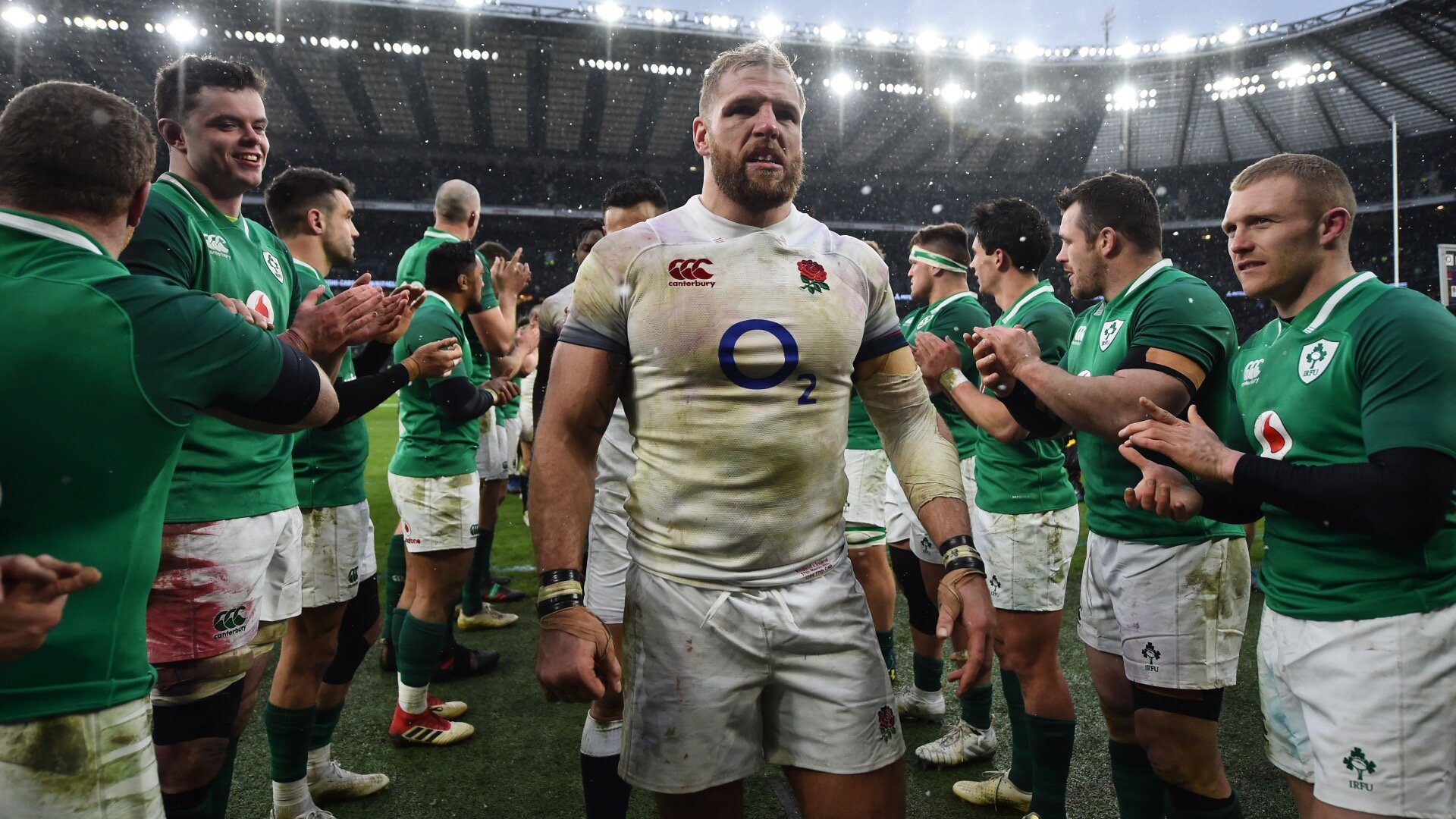'I said goodbye to the lads and I broke down, blubbed in front of them, couldn't get my words out - I didn't expect that'

James Haskell broke down in tears when telling his Northampton team-mates he is to retire at the end of the season as he faces the “terrifying” prospect of life without rugby.
Recurring ankle and toe problems have severely restricted Haskell’s game time at Franklin’s Gardens and the 34-year-old has decided to end a decorated 77-cap career that began at Wasps in 2002.
Three Six Nations titles, including a Grand Slam, and man-of-the-series contribution to England’s 3-0 whitewash of Australia in 2016 feature among the British and Irish Lion’s achievements.
But he admits the greatest challenge of all could be adapting to the lack of purpose that awaits, referencing a character from the film Shawshank Redemption named Brooks Hatlen who is unable to adjust after being released following a 50-year spell in prison.
“I’ve been in this kind of environment since boarding school at eight years old until 34,” said Haskell, whose business interests already include broadcasting, health and fitness programmes and DJing.
This is a day that I thought was going to be a while off, and done in different circumstances, but that is the nature of professional sport.
It’s with a really heavy heart I announce my… https://t.co/29MzEk0b08— James Haskell (@jameshaskell) May 8, 2019
“I’m like Brooks from Shawshank Redemption. I’m not going to hang myself in a hotel but it is like that, missing that structure the whole time. Finding my feet again is going to be really hard. I’m lucky, my wife is amazing, she spotted it coming and I do have good days and bad days.
“I said goodbye to the lads the other day and I broke down, I blubbed in front of them. I couldn’t get my words out. I didn’t expect that. I said to the lads I was just going to say a few words but I just
couldn’t speak and I cried. There are a lot of emotions with it.
“I speak to a lot of players who have retired and they find it hard. A lot of players find it hard. A lot of sportsmen get depression, all sorts of mental health issues. I always talk to my psychologist, I’ve got stuff in place to do that but structure is going to be big thing and I’ve got to find it.
“Making sure I’m up at a certain time, working, training. I’m a workaholic so I’ll never sit back but it’s very hard knowing that one chapter is closing and another one is opening, but you don’t know what it’s going to be.
“A lot of people come up to me and say, ‘you’ll be alright, you’ve done this, it’s impressive’, but it’s as terrifying as if I had never done anything. That’s because I’m a perfectionist and also because I didn’t celebrate all the little moments in my career that I should have done, I always
focused on what was next, how could I be better.
“So many times when we won trophies I’d have a couple of beers but I’d go home so I could get a good night’s sleep, wake up and train the next day.”
Tweets by jameshaskellHaskell’s international career enjoyed a renaissance with Eddie Jones’ arrival at Twickenham and it was during the opening two years of the Australian’s reign that he played his best rugby for England.
As a mainstay of Jones’ back row, Haskell played the best rugby of his best career as a big-hitting openside who also offered a threat at the breakdown and it was during the 3-0 whitewash of the Wallabies in 2016 that he peaked.
The start of the fitness problems that have ultimately ended his playing career can be traced to that series after a toe injury forced him to miss the final Test, leaving him in daily pain ever since.
Chapeau, @jameshaskell!
A legend of English rugby will hang up his boots this summer – what a career he’s had ??
— Northampton Saints ? (@SaintsRugby) May 7, 2019
“My best games for England were under Eddie Jones,” said Haskell, who identified Brian O’Driscoll as his most dangerous opponent and Richie McCaw as his favourite player. “Eddie out of everyone treated me in a way that got the best out of me.
“He understood that I was a guy who needed an arm around me, needed my tyres pumped up, someone to believe in me and actively want to help me. He did that and I played my best rugby for him and I thank him for that because I never thought I would play again for England after the 2015 World Cup.”
'My first experience of him was when he was the young whippersnapper coming through at Wasps and he was trying to be the new Lawrence Dallaglio. We called him Mini Lol at Leicester'
– @AndyGoode10 reflects on the life and rugby times of the retiring… https://t.co/YxbsrwxLiI
— RugbyPass (@RugbyPass) May 8, 2019
– Press Association


































